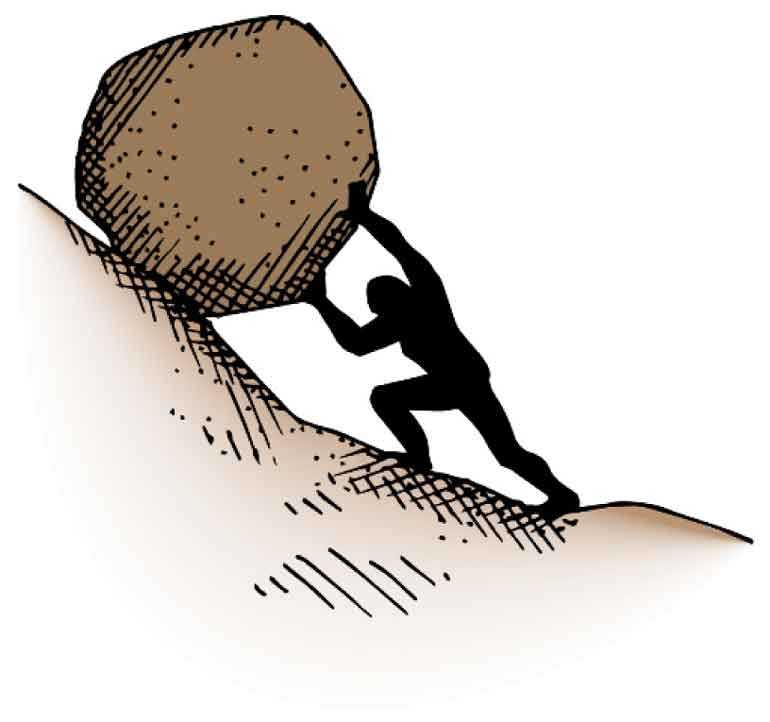Sunday Feb 15, 2026
Sunday Feb 15, 2026
Saturday, 27 June 2020 00:10 - - {{hitsCtrl.values.hits}}

Many things in life are imposed on us whether we like it or not
 During the two months of a total lockdown, I had plenty of time to contemplate on the purpose and meaning of life. Just when the lockdown eased up, a person I have known for more than 40 years died by suicide. Suicide is the ultimate retreat from life.
During the two months of a total lockdown, I had plenty of time to contemplate on the purpose and meaning of life. Just when the lockdown eased up, a person I have known for more than 40 years died by suicide. Suicide is the ultimate retreat from life.
The lockdown that turned our lives upside down was all about the idea of overcoming death. Defeating death has been the quest of mankind since the discovery of ignorance and the beginning of science. Despite the scourge of the pandemic medical science is in a relentless march to make life more secure.
As the futurist Yuval Harari observes the 21st century human agenda considers death, decease and old age to be technical problems that science could and should overcome.
Two genetic engineers, who have recently published ‘The Death of Death’, claim that by year 2045 human beings will only die in accidents and not due to natural causes or illness. A Spanish scientist Jose Luis Cordeiro and Cambridge (UK) mathematician David Wood assert that immortality is a real scientific possibility and it is time to consider old age as an illness that calls for a cure!
If overcoming death is a primal human instinct, why do people die by suicide? Sheer senselessness of this act of despair compels us to ponder this question.
Did the pressures of the present and fears of the future precipitate this agonised cry of enough is enough?
The dismissively smartass expression is that suicide is a permanent solution to a temporary problem. It ignores the profoundly tortured world of the person who has finally succeeded in leaving behind something deep and lasting.
A person’s suicide often takes the people it leaves behind by surprise. If you knew the person well enough and close enough, and you still possess normal human emotions, you are bound to experience some faint traces of a survivor’s guilt for failing to see it coming.
Some unknown, ghoul who had access to the very personal note left behind by the person has released its contents. Any reference to the contents in that communication would be ethically reprehensible.
Assuming that suicide is a fleeting impulsive aberration, or an avoidable side effect of a mental disorder ignores reality.
It is a reality check in the murky world of vulgar wealth. It is a protest addressed to the affluent class that has avoided the painful task of being human. Of the failure to behave as normal beings who are willing to share and reach out.
During the lockdown, I took out my ancient copy of Albert Camus’s masterpiece ‘The Plague’.
“Thus, each of us had to be content to live only for the day, alone under the vast indifference of the sky.”
The subject of suicide, the point of departure of this essay, prodded my memory about another provocatively original collection of essays Camus published as ‘The myth of Sisyphus’ – drawing on the moral fable about Sisyphus – the Homeric character in Greek mythology.
Sisyphus outwitted the gods. For that impudence he was condemned for all eternity to push a boulder up a mountain only to have it roll to the bottom again and again. Sisyphus fully recognises the futility and pointlessness of his task. But he willingly pushes the boulder up the mountain every time it rolls down, for he was taking on the gods!
In his first essay ‘An Absurd Reasoning’, Camus opens with these extreme lines:
“There is but one truly serious philosophical problem, and that is suicide. Judging whether life is or is not worth living amounts to answering the fundamental question of philosophy.
All the rest – whether or not the world has three dimensions, whether the mind has nine or twelve categories – comes afterwards. These are games; one must first answer.”
Who is Sisyphus? What was he like? Sisyphus was the king of Corinth at times very humane and at times unbelievably cruel and obstinately arrogant. He was regarded as the cleverest of all humans and a methodical man of the world. But he was also a psychotic tyrant who lured travellers into entering his city, where he had them killed. He did not earn his punishment for these lapses.
He committed the greatest of all sins. He became so proud as to believe he could outsmart the gods.
Sisyphus dared to steal secrets from the gods including the whereabouts of the nymph Aegina whom Zeus the king of Gods had already abducted.
Zeus ordered Thanatos the god of death to put Sisyphus in chains. Sisyphus outsmarted the god of death and chained his captor instead. With that ingenious feat, no one on earth could die.
That meant that no one on earth needed to appease the gods to heal the sick or treat the wounded. Finally, all gods united, and Sisyphus was condemned to the eternally humbling punishment of pushing the boulder up the hill for it to roll down again. The condemned hero would continue on and on.
Camus portrays Sisyphus as the absurd hero. Instead of accepting the chore of pushing up the boulder as a punishment, he makes it a routine of life. He is reconciled to the absurdity of the world and the absurdity of what is expected out of his existence.
The dismissively smartass expression is that suicide is a permanent solution to a temporary problem. It ignores the profoundly tortured world of the person who has finally succeeded in leaving behind something deep and lasting
What Camus suggests is rather simple. Human beings must make up the purpose for their existence.
Should we live our lives or allow life to make us live? Do we allow external events or other people to push us in to negativity from which there is no escape?
In the ultimate analysis, is it the individual who determines the experience of life? What would you do if you cannot control external events? Many things in life are imposed on us whether we like it or not.
What Albert Camus suggests is something that we already know but reluctant to concede but we are already unconsciously complying with. All the sound and fury of life serve to cover up the meaninglessness of our existence. The absurd is tolerable and liveable. We live the absurdity every day.
The lack of an overall purpose or an immediate meaning does not suggest that there is no value in living.
When you read the Myth of Sisyphus you learn that killing oneself is an “insult to existence,” even though “life is painful”.
At age 78, I should know. Life is exhausting, repetitive, anxious, and absurd. But the trick is to learn to laugh and find joy and humour in the absurd. We must all learn to thrive in the absurd. Just watch what happens on 5 August. Sisyphus will be rolling the boulder up the hill and the boulder will be down again. On 6 August Sisyphus will be at it again.
In ‘The Myth of Sisyphus’, Camus compares the average human existence to the torture of Sisyphus, condemned to roll the same boulder up the same hill, just to have it roll down again, over and over until the end of time.
He is punished because he escaped the underworld once and lived some years enjoying life on earth. Now the gods have condemned him to this meaningless task. Camus finds it absurd but real and heroic. Sisyphus does not contemplate suicide. Suicide is an illusory promise too.
“You have already grasped that Sisyphus is the absurd hero. He is, as much through his passions as through his torture. His scorn of the gods, his hatred of death, and his passion for life won him that unspeakable penalty in which the whole being is exerted toward accomplishing nothing. This is the price that must be paid for the passions of this earth.”